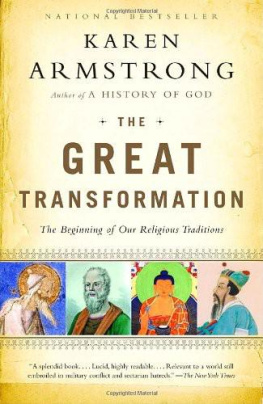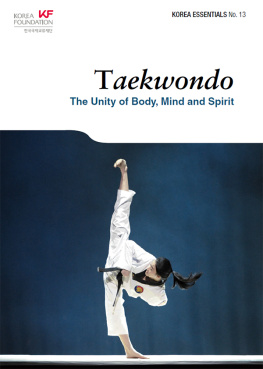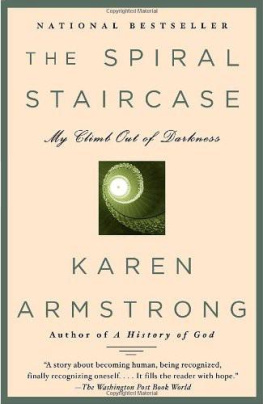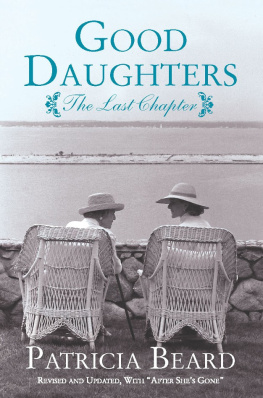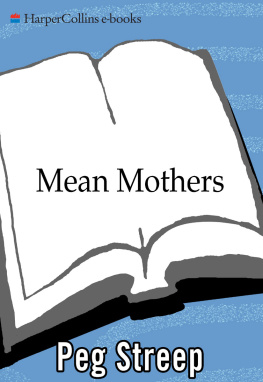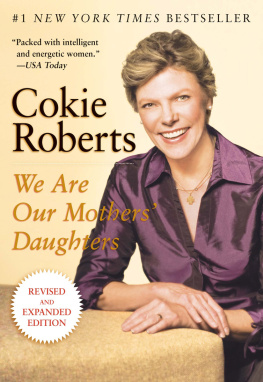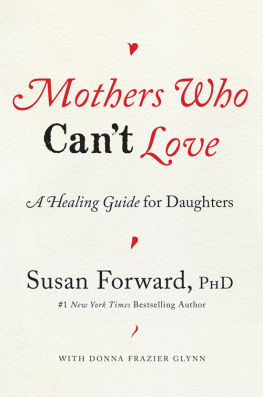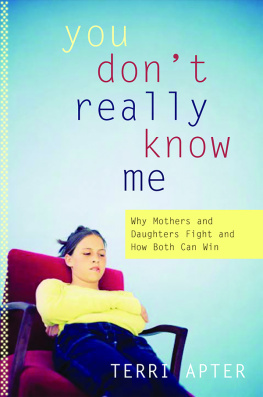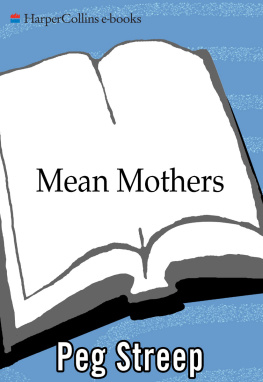LIKE MOTHER, LIKE DAUGHTER?
How career women influence their daughters ambition
Jill Armstrong
First published in Great Britain in 2017 by
Policy Press University of Bristol 1-9 Old Park Hill Bristol BS2 8BB UK Tel +44 (0)117 954 5940 e-mail
North American office: Policy Press c/o The University of Chicago Press 1427 East 60th Street Chicago, IL 60637, USA t: +1 773 702 7700 f: +1 773-702-9756 e:
Policy Press 2017
British Library Cataloguing in Publication Data
A catalogue record for this book is available from the British Library
Library of Congress Cataloging-in-Publication Data
A catalog record for this book has been requested
ISBN 978-1-4473-3408-8 hardcover
ISBN 978-1-4473-3411-8 ePub
ISBN 978-1-4473-3412-5 Mobi
ISBN 978-1-4473-3409-5 ePdf
The right of Jill Armstrong to be identified as author of this work has been asserted by her in accordance with the Copyright, Designs and Patents Act 1988.
All rights reserved: no part of this publication may be reproduced, stored in a retrieval system, or transmitted in any form or by any means, electronic, mechanical, photocopying, recording, or otherwise without the prior permission of Policy Press.
The statements and opinions contained within this publication are solely those of the author and contributors and not of the University of Bristol or Policy Press. The University of Bristol and Policy Press disclaim responsibility for any injury to persons or property resulting from any material published in this publication.
Policy Press works to counter discrimination on grounds of gender, race, disability, age and sexuality.
Cover design by Double Dagger
Front cover image: Getty
Readers Guide
This book has been optimised for PDA.
Tables may have been presented to accommodate this devices limitations.
Image presentation is limited by this devices limitations.
To my parents, Eileen and Harold because its the way your parents make you feel that counts the most.
List of figures
Preface
For several decades significant numbers of women have been working in professional and managerial careers, yet women are still far from being equally represented in senior positions.
An unspoken assumption of many is that the example of successful working mothers will, in turn, inspire their daughters and ultimately redress the balance. Two influences motivated me to question this.
First, in my former career in market research, I was continually struck by the many ways in which the women I interviewed far more so than the men were still grappling with how to combine a career with parenthood.
Second, although the mother of sons, my personal observations of friends and family caused me to wonder how the millennial daughters of mothers with careers feel about their mothers careers and how this affects their own ambitions.
Together, these thoughts led me to conduct the research upon which this book is based.
My thanks go especially to the daughters and mothers who participated in this research who were so generous with their time and perspicacious views. It was a pleasure to meet you all.
Thanks also go to Tamsin-Hinton Smith and Lizzie Seal, who supervised my doctoral thesis, to Kay Armstrong, Andrew Sharp and Zo Young for their valuable contributions to the drafts of this book and to the team at Policy Press.
ONE
Mothers, daughters and careers
Chapter themes
Rachel is in her final year at university. She talks about her interest in her mothers career, growing up with a mother who works relatively long hours out of the home, and how this has influenced her. Her comments illuminate the research question explored in this book, which asks to what extent having a mother with a successful career leads her daughter(s) to want to follow in her footsteps in terms of both the daughters career, and how she thinks about combining work with motherhood.
Im really interested in what my mum does; I really admire her career If I were to have a career anywhere near as good as hers Id be very happy. Half as good.
She [is involved with] all these interesting projects and there are many things Ive looked into and shell be, like, Oh, Ive worked with them. She knows so many people and its impressive when you go to [something] with her and theres like a million very important people who know her Afterwards I think I always feel more engaged in thinking about things, about what I want to do. I dunno how to explain it but it does make me feel inspired to research things that I could do When people ask me what I want to do I often talk about my mums job.
My Mum is like, work hard if you enjoy it do what makes you happy. I dont see myself as a stay-at-home mum, I guess; I wouldnt want to do that I dont think. I dont necessarily think its good for the children, well, I dont know, its up to you. It doesnt harm you in any way to have a working mum and its probably more enjoyable for your mother. For me, I would want to work.
I dont think I really realised [about Mums career] until I was older, in sixth form. I dont think it really occurred to me, or I didnt think about it much I think it makes you more independent, which is a good thing. You look after yourself, you cook for yourself, you learn to do things like that. Id cook for my siblings, and was quite happy to do that. I like having my own space, always have. And its also quite like makes you want to do the same sort of things, I guess. I have a lot of friends whose mums stayed at home, and they feel that ultimately theyd be stay-at-home mums after working.
Rachel is typical of many of the daughters interviewed in feeling that having a mother with a career is a benefit to her and that she has not been ill-affected in any way. In the joint interview later, with her mother, Rachel tells her mother, I dont think it had any negative effect I dont know why youd feel guilty.
Like most of the daughters interviewed, Rachel was proud of her mothers career. Like many of the daughters, she had become interested in her mothers job as she grew older. And, like most, she expected to emulate her mother in working in an interesting career and combining this with motherhood. Rachels mother, Rose, had started her career in professional services and after having her children she had tried to negotiate working a four-day week. In common with many women of her generation, she was told that this would mean she was no longer on the path to the top level of her career. So Rose switched into a career in the public sector, where she could negotiate some flexibility. Rose then progressed to the highest level of her new profession.
This work focuses on women who work in professional and managerial careers who are also mothers of adult daughters. Twenty-five per cent of women who work have careers classified as SOC 1 or 2 (managers, directors and senior officials, or professional occupations) (ONS, 2010, 2013b). Many women who have reached senior levels in their careers started work in the 1970s and 1980s. Many of these women are also mothers and members of the first generation of highly educated women for whom it was the norm among their peers to work, and to return to work after they became mothers (Wolf, 2013). These mothers are now old enough to have adult daughters in their twenties and thirties, some of whom have children of their own. For this study, 30 mothers all of whom had consistently worked long hours in demanding careers were interviewed along with their adult daughters. The daughters belong to a generation of women who, it is often argued, have the potential to achieve professionally as much as men. Yet, as the evidence presented in this book will show, the narrative of progress in gender equality is challenged by the fact that women continue to be poorly represented in positions of power in the UK and other Western democracies, in private and public sector organisations. It is therefore timely for research to explore to what extent having a mother with a successful career leads her daughter to want to follow in her mothers footsteps. This book starts with the words of Rachel and Rose because a question often asked by mothers is whether their children think that their careers have benefited or compromised them. The short answer to this pressing question is that almost all the daughters believed that having a mother with a career that she found satisfying benefited them, or at least did them no damage. This adds to the body of recent research that challenges the prevalent worry expressed by many working mothers that the hours they spend working out of the home leaves their children compromised (Backett-Milburn et al, 2011; Mendolia, 2014; McGinn et al, 2015; Milkie et al, 2015). This is an important finding, because it suggests that the continuing lack of representation of women in the most senior positions at work cannot be accounted for by a backlash of daughters reacting against their upbringing by mothers with a career.



